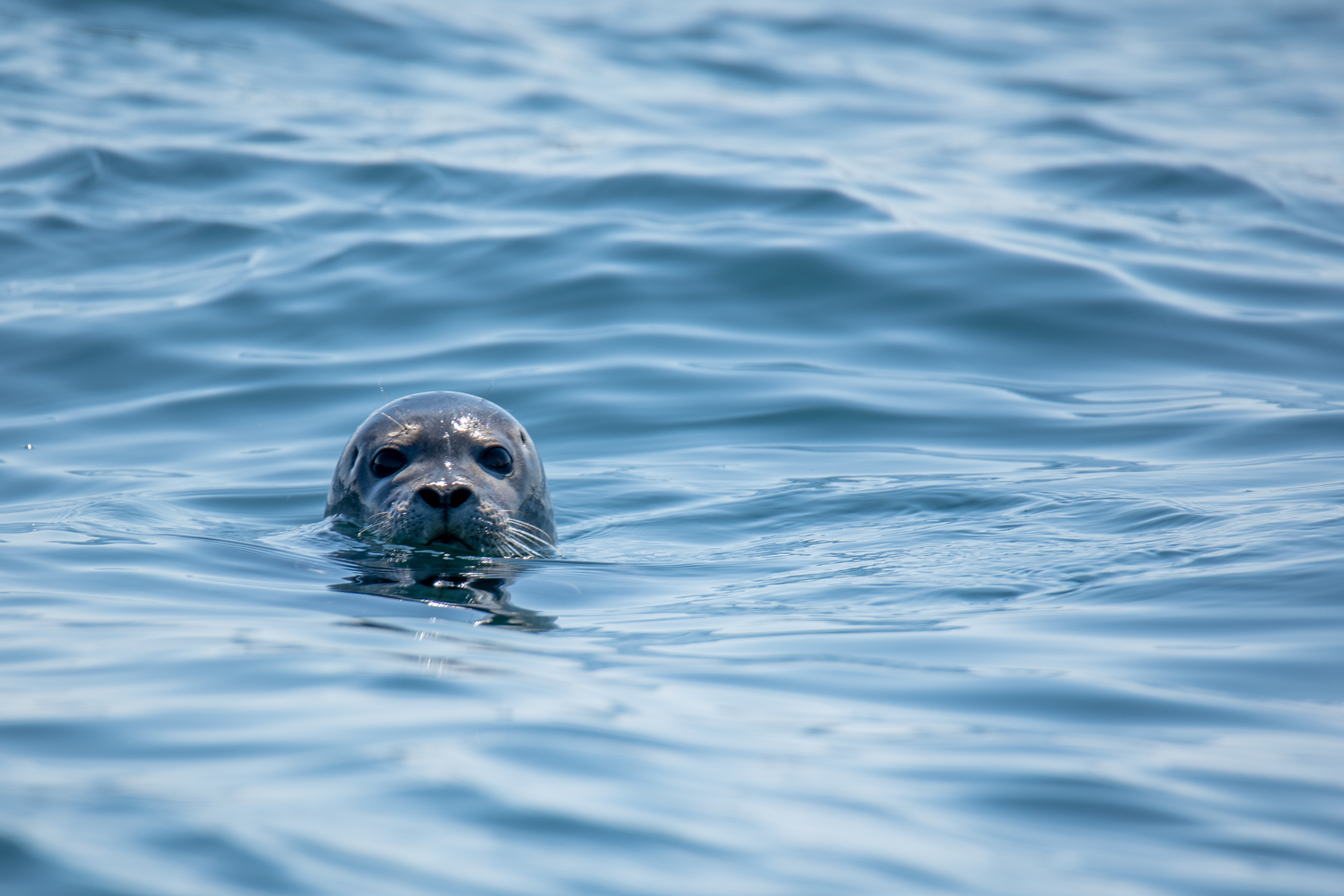
What is avian influenza (also called avian flu or bird flu)?
Avian influenza is a disease (more specifically, a virus) that can affect and is spread primarily among birds. Wild birds, particularly waterfowl, are natural carriers of the avian influenza virus, and despite not being automatically affected by the disease, they can transmit it to other wild birds as well as vulnerable domestic birds.
 While the virus mainly spreads among birds, it can also be transmitted by birds to other types of animals. A few cases of avian flu were reported among harbour seals in the Lower St. Lawrence region in southern Québec, a rare phenomenon, and in December 2024, a ringed seal was also found to have contracted the virus in Nunavut. The seals involved were apparently infected when they came into close contact with a number of birds who had contracted or died of the avian flu; this situation likely occurred because the two species shared the same breeding grounds.
While the virus mainly spreads among birds, it can also be transmitted by birds to other types of animals. A few cases of avian flu were reported among harbour seals in the Lower St. Lawrence region in southern Québec, a rare phenomenon, and in December 2024, a ringed seal was also found to have contracted the virus in Nunavut. The seals involved were apparently infected when they came into close contact with a number of birds who had contracted or died of the avian flu; this situation likely occurred because the two species shared the same breeding grounds.
Why is avian influenza (the bird flu) making headlines?
There is currently an outbreak of a highly pathogenic strain of avian influenza (H5N1 subtype) in eastern North America. Experts acknowledge that ducks and geese can be affected by the disease, and the onset of the seasonal migration has resulted in the virus spreading further North. As was the case in Nunavut and Labrador, the avian flu virus was detected in birds in Nunavik.
For more information, go to the Web page Avian influenza in wild birds - www.canada.ca
Can the virus be transmitted to humans?
The possibility that the virus could be transmitted to a human by a bird or mammal is extremely low, but the disease is nonetheless considered serious. The first case among humans in Canada was discovered in British Columbia in 2024. We have yet to understand exactly how the virus can be transmitted by wildlife to humans, but it is likely through secretions, blood or feces. If you become very ill after having handled wild animals or birds, contact a doctor or a CLSC nurse.
Can we safely handle wild birds?
Hunting, handling and eating healthy birds is considered harmless. This being said, given that handling wild birds could result in a person being exposed to the virus, we urge you to adhere to the following recommendations.
When manipulating or cleaning game, and when gathering eggs:
- Limit all direct contact with the blood, feces and respiratory secretions of wild birds to that which is strictly necessary.
- Always carry out these tasks in well-ventilated areas.
- If working outdoors, make every effort to position yourself with your back to the wind so as to avoid breathing in dust, feathers or aerosols.
- Avoid touching your face with unwashed hands.
- Wear gloves (made of a material such as vinyl, latex, nitrile or rubber) whenever possible.
- Wash your hands with soap and hot water as soon as you are done with your tasks. If water is not available, use a hand disinfectant or wipe your hands with alcohol (strength of at least 60%).
- When gathering eggs, separate the clean ones from the dirty ones, and throw away any eggs with cracked shells.
- Only clean eggs when they are dry. Do so by rubbing away the dirt, grime and other debris on the shells with a clean and dry paper towel, cloth or brush. Washing eggs with water or soaking them can have an impact on the integrity of the shell, which could then allow germs to reach the egg itself.
Once you have completed all of your harvesting and other activities:
- Carefully clean and disinfect all work surfaces and tools/implements, first with soapy water, then with a household disinfectant.
- Remove all clothing and footwear that could have been contaminated by blood, feces or respiratory secretions. Wash all potentially contaminated clothing as soon as you get home.
Avoid handling any dead birds that you did not personally kill as well as any birds that appear sick. Signs that a bird may be infected include nervousness, trembling or a lack of coordination, swelling near the head, neck or eyes, lethargy or immobility, coughing, panting/breathing rapidly or sneezing, diarrhea or dying suddenly.
Infected seals will display unusual behaviour or die in a manner that is not customary.
Example of neurological signs caused by avian flu in a bird:
It is also suggested that hunters and other people who handle birds and mammals adhere to careful cleaning practices (including wearing gloves and washing hands, clothing and equipment, etc.) in order to decrease the risk of infection and virus propagation.
Further information on handling wild birds can be found here (includes tips for hunters): Wildlife and avian influenza - Handling guidelines to protect your health - www.canada.ca
Can we continue to safely eat birds during this time?
Yes, contingent on the bird appearing healthy and being properly cooked. Nothing leads to believe properly cooked birds could constitute a source of infection by the avian influenza virus for humans.
- Wild birds and eggs are nutritious.
- Fully cooking duck, geese and eggs reduces the risk of exposure to the avian flu virus.
- According to what is currently known, ptarmigan are not known to constitute a major risk as regards the transmission of avian influenza, but we nonetheless recommend that precautions be taken when handling them.
- The following recommendations allow for further limiting the risk of disease.
Handling:
- Store raw meat away from other food products to avoid any cross-contamination.
- Wash your hands often, especially prior to and after having handled raw meat.
- Carefully clean all potentially contaminated work surfaces and tools with soapy hot water, then clean again with a household disinfectant or a solution consisting of 25 ml of bleach and 2 litres of water.
Cooking:
- Thoroughly cook eggs,taking special care to ensure that yolks are hard (not runny).
- Thoroughly cook meat, making sure there is no pink or red flesh.
What to do if you find sick or dead birds?
Avoid touching any sick or dead birds. You can report any such findings to Noah Brosseau or Peter May at the Nunavik Research Centre (819 964-2925).
What to do if you find sick or dead seals?
Avoid touching any sick or dead seals. Report your findings to Noah Brosseau or Peter May (819 964-2925) at the Nunavik Research Centre, particularly since the avian flu has yet to be detected among seal populations in Nunavik.
